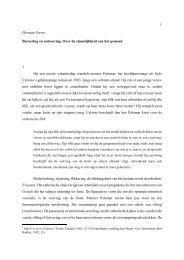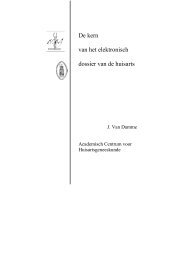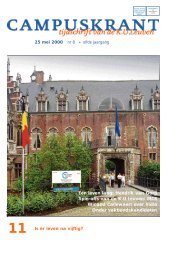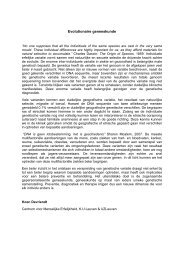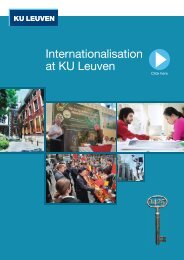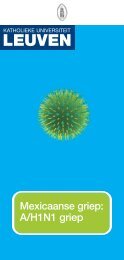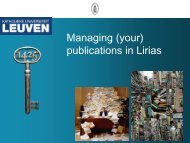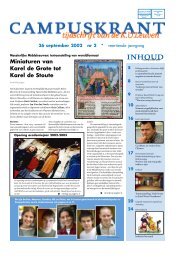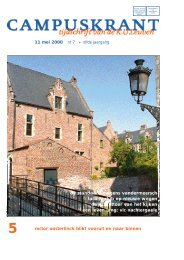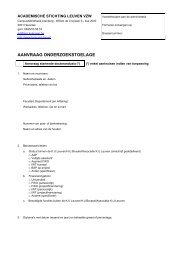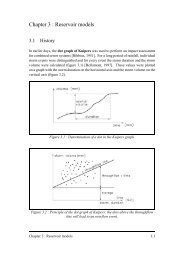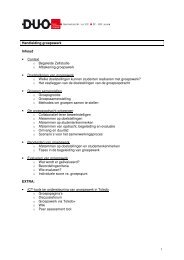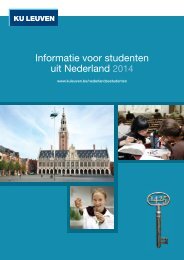EQUALITY GUIdE - KU Leuven
EQUALITY GUIdE - KU Leuven
EQUALITY GUIdE - KU Leuven
You also want an ePaper? Increase the reach of your titles
YUMPU automatically turns print PDFs into web optimized ePapers that Google loves.
190 Equality Guide<br />
listed: the need to attend all of the ten lunches, the willingness to help the researcher<br />
with the data collection by means of inquiries and interviews, and to give support<br />
whenever necessary for the research. Women interested in participating could also<br />
express their expectations concerning the place, the day and the hour of the meetings.<br />
A list was passed round where the interested persons could fill in their name, discipline<br />
and e-mail address. The information moments were concluded with a question time.<br />
Everyone was asked to indicate on the participants list if they wanted to take part in the<br />
project (see Tool Annex). There was also a possibility to respond afterwards by e-mail.<br />
3.2.2. A selection based on motivation and criteria<br />
The number of people interested exceeded all expectations. At the first information<br />
event, there were 25 people, at the second information event approximately 20 and we<br />
received some e-mail responses as well. This added up to about fifty people. That is<br />
why we asked each of those fifty women to motivate their application (see Tool Annex).<br />
In total, 30 motivations were put in an Excel document. In order to collect as much<br />
expertise and as many experiences as possible, a heterogeneous group was composed.<br />
The following criteria were postulated:<br />
! all faculties had to be present;<br />
! both junior (starting) and senior (with experience) academicians;<br />
! women with and without children;<br />
! knowledge concerning methodology: theoretical or practical;<br />
! knowledge concerning communication: professional communication knowledge,<br />
experience expert;<br />
! science communication: experience, practice, training;<br />
! gender aspects in own research;<br />
! personal experience with gender problems;<br />
! member of governing bodies, work groups, being the only woman at meetings;<br />
! critical view on gender problems, or never experienced any gender problem.<br />
Given the motivations of the people interested and the criteria, 12 participants were<br />
selected eventually. The people who had not been selected, were informed by e-mail.<br />
They were also told that they would receive further information. These were labelled<br />
‘passive participants’.<br />
3.2.3. Blackboard communication<br />
To guarantee an efficient communication process, a blackboard environment was<br />
created (see Tool Annex). This created the possibility to have a discussion forum, an<br />
information platform, documents and interesting links and the production of several<br />
mail groups such as active and passive participants.



